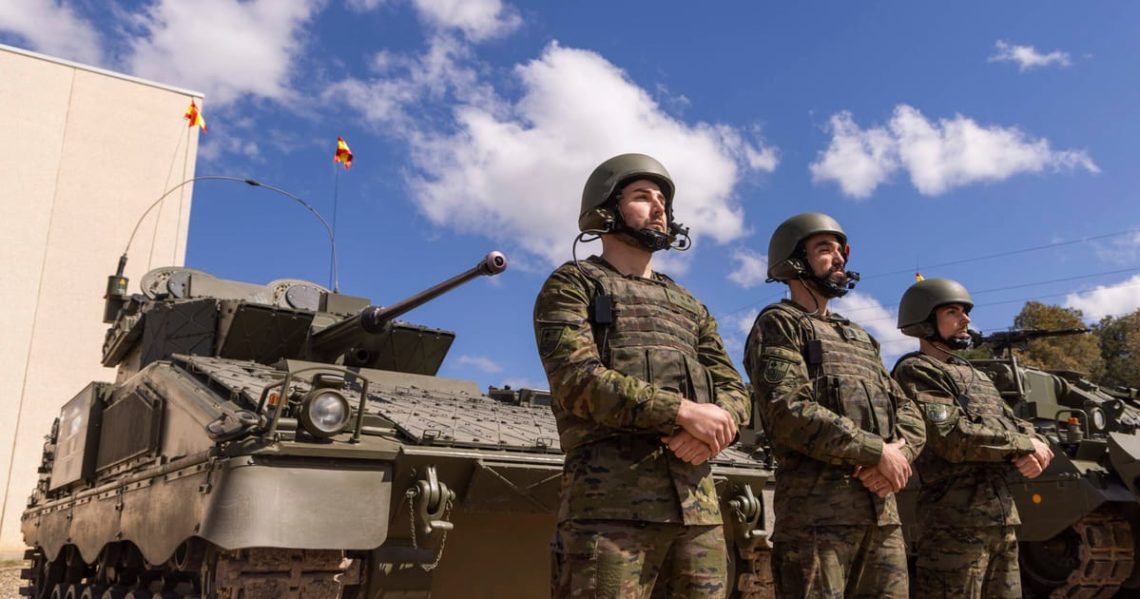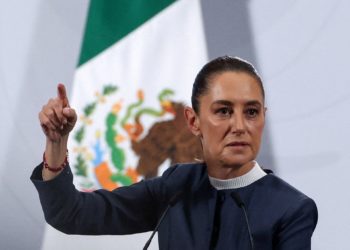Spanish Prime Minister Pedro Sánchez on Tuesday promised to meet NATO’s target of spending 2 percent of GDP on defense by the end of the year in a revolution of the country’s current diffident approach to military budgets.
Citing the “rapidly evolving geopolitical and economic context,” Sánchez said the country would spend an additional €10.4 billion on defense, raising its total military expenditures to around €34 billion.
Spain is the alliance’s lowest defense spender, setting aside just 1.28 percent of its GDP on the military in 2024 — well below the alliance’s 2 percent target and a fraction of the 5 percent demanded by U.S. President Donald Trump.
Previously, the country only aspired to meet the NATO goal by 2029, but in recent months Washington and Brussels have been pressuring Madrid to speed up that timeline. During a meeting with Spanish Economy Minister Carlos Cuerpo last week, U.S. Treasury Secretary Scott Bessent insisted that Spain needed to boost defense spending.
Around a third of the new funds are set to be used to improve conditions for members of Spain’s armed forces, who will receive significant raises. Another €3.26 billion will be allocated for telecommunication and cybersecurity expenditures, which Sánchez said would reinforce the country’s “digital shield,” and €1.9 billion will be earmarked for new defense and deterrence equipment.
Pacifist deterrence
The prime minister’s left-wing coalition partners and his traditional allies within the Spanish parliament are opposed to what they call the country’s “militarization,” especially if it comes at the expense of Spain’s expansive welfare programs.
Sánchez insisted that “not one cent” of the higher defense budget would be taken from existing social schemes or collected with new taxes. Instead, he said the money would be sourced from public savings generated by the well-performing Spanish economy, unused national budget funds and untapped EU pandemic recovery cash.
Sánchez also took pains to emphasize that Spain remains a “pacifist” country, and that the investments are meant to “deter those who might think of attacking Europe.”
He also stressed that many of the measures, like the €1.75 billion allocated to strengthen the Spanish armed forces’ capabilities in emergency situations, will help troops respond to domestic crises like natural disasters linked to climate change.
The spending boost appears to have divided Sánchez’s coalition government. Shortly after he unveiled the plan, ministers belonging to the left-wing Sumar group criticized the “exorbitant” expenditures, which they said had been rolled out without “in-depth, objective, and consensual reflection.”
Spanish companies are set to be the greatest beneficiaries of the spending boost, with 87 percent of investments going to domestic projects. According to Spanish government projections, the new investments could increase Spain’s GDP between 0.4 percent and 0.7 percentage points and create up to 100,000 new jobs.
The plan is set to be submitted to both the European Commission and NATO in Brussels on Wednesday.
The post Spain unveils plan to meet NATO’s defense spending target this year appeared first on Politico.




